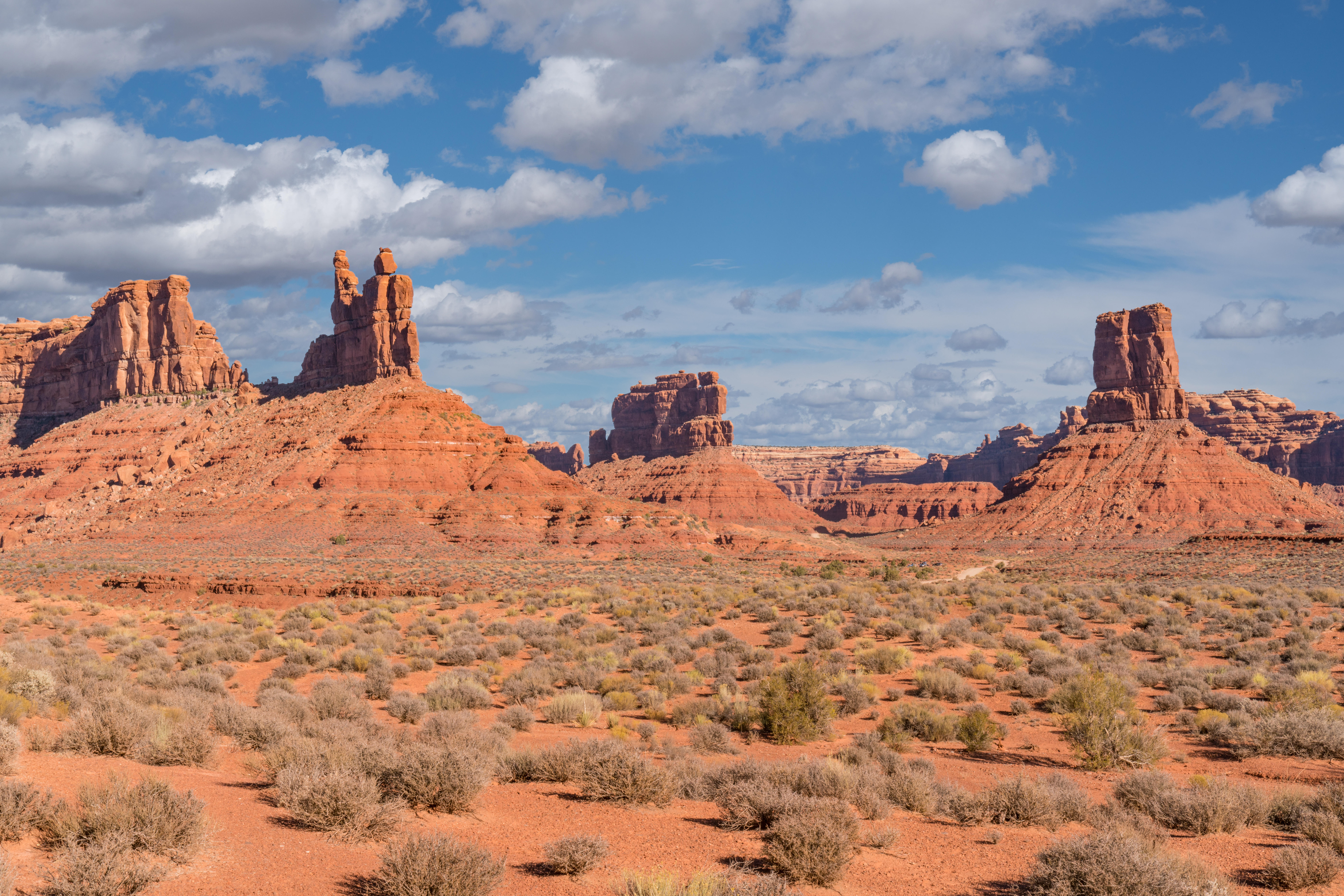Trump officially opens formerly protected Utah national monuments for business


A free daily email with the biggest news stories of the day – and the best features from TheWeek.com
You are now subscribed
Your newsletter sign-up was successful
The Interior Department released final plans Thursday for two national monuments in Utah that President Trump moved to radically shrink two years ago. Under the final plans, about 2 million acres that were once part of Bears Ears and Grand Staircase-Escalante national monuments would be open to mineral extraction and ranching. Public lands advocates, Native American groups, and conservationists whose lawsuits to prevent the downsizing of the national monuments are still being litigated in court, called foul.
Former President Bill Clinton cellared Grand Staircase-Escalante a national monument in 1996 and former President Barack Obama protected Bears Ears in 2016, both using the 1906 Antiquities Act. Trump proposed cutting Grand Staircase-Escalante by half and Bears Ears by 85 percent. "But the law itself is unclear on who actually has the power to abolish or shrink national monument boundaries," NPR notes, "and legal experts say it has traditionally been the responsibility of Congress to modify the size of public lands."
Casey Hammond, acting assistant secretary of land, minerals, and mineral management at the Interior Department, said Thursday the Trump administration has no intention to hold off on opening the monuments to ranchers and oil, gas, and coal companies. "If we stopped and waited for every piece of litigation to be resolved, we would never be able to do much of anything around here," he told reporters.
The Week
Escape your echo chamber. Get the facts behind the news, plus analysis from multiple perspectives.

Sign up for The Week's Free Newsletters
From our morning news briefing to a weekly Good News Newsletter, get the best of The Week delivered directly to your inbox.
From our morning news briefing to a weekly Good News Newsletter, get the best of The Week delivered directly to your inbox.
Groups who oppose the de-protection of Grand Staircase-Escalante and Bears Ears have a few more months to get an injunction, The Washington Post reports. "The earliest the government could approve new mining claims and other kinds of development is Oct. 1, because of language Congress adopted in a spending bill."
A free daily email with the biggest news stories of the day – and the best features from TheWeek.com
Peter has worked as a news and culture writer and editor at The Week since the site's launch in 2008. He covers politics, world affairs, religion and cultural currents. His journalism career began as a copy editor at a financial newswire and has included editorial positions at The New York Times Magazine, Facts on File, and Oregon State University.
-
 Moltbook: The AI-only social network
Moltbook: The AI-only social networkFeature Bots interact on Moltbook like humans use Reddit
-
 Judge orders Washington slavery exhibit restored
Judge orders Washington slavery exhibit restoredSpeed Read The Trump administration took down displays about slavery at the President’s House Site in Philadelphia
-
 Kurt Olsen: Trump’s ‘Stop the Steal’ lawyer playing a major White House role
Kurt Olsen: Trump’s ‘Stop the Steal’ lawyer playing a major White House roleIn the Spotlight Olsen reportedly has access to significant U.S. intelligence
-
 TikTok secures deal to remain in US
TikTok secures deal to remain in USSpeed Read ByteDance will form a US version of the popular video-sharing platform
-
 Unemployment rate ticks up amid fall job losses
Unemployment rate ticks up amid fall job lossesSpeed Read Data released by the Commerce Department indicates ‘one of the weakest American labor markets in years’
-
 US mints final penny after 232-year run
US mints final penny after 232-year runSpeed Read Production of the one-cent coin has ended
-
 Warner Bros. explores sale amid Paramount bids
Warner Bros. explores sale amid Paramount bidsSpeed Read The media giant, home to HBO and DC Studios, has received interest from multiple buying parties
-
 Gold tops $4K per ounce, signaling financial unease
Gold tops $4K per ounce, signaling financial uneaseSpeed Read Investors are worried about President Donald Trump’s trade war
-
 Electronic Arts to go private in record $55B deal
Electronic Arts to go private in record $55B dealspeed read The video game giant is behind ‘The Sims’ and ‘Madden NFL’
-
 New York court tosses Trump's $500M fraud fine
New York court tosses Trump's $500M fraud fineSpeed Read A divided appeals court threw out a hefty penalty against President Trump for fraudulently inflating his wealth
-
 Trump said to seek government stake in Intel
Trump said to seek government stake in IntelSpeed Read The president and Intel CEO Lip-Bu Tan reportedly discussed the proposal at a recent meeting
